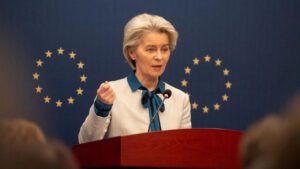Climate Change in Southeast Asia: From Warning to Emergency
As the planet approaches critical ecological tipping points, climate change has evolved beyond an environmental concern—it is now a civilizational emergency. Southeast Asia, home to more than 650 million people, is at the frontline of this crisis. The region’s densely populated deltas, low-lying coastlines, and rich biodiversity make it especially vulnerable. Yet ASEAN’s current climate stance remains fragmented, conservative, and insufficient for the scale of the challenge.
If ASEAN is to avoid becoming a global cautionary tale of inaction, it must transform into a platform for binding, enforceable climate policy. The era of soft consensus is over. The time has come for firm, institutional cooperation.
ASEAN’s Traditional Climate Approach: Non-Interference vs. Urgency
Historically, ASEAN has adhered to a non-interference principle, avoiding legally binding climate commitments in favor of broad declarations and voluntary frameworks. While this strategy may have promoted regional stability, it is ill-suited for climate change—a challenge that is transboundary, cumulative, and irreversible.
Environmental damage in one country now creates ripple effects throughout the region. Indonesian forest fires pollute Malaysian and Singaporean air. Floods in Thailand and Vietnam threaten regional food security. Plastics from the Philippines wash up on the shores of Brunei and Cambodia. Climate change does not respect borders, and neither can effective policy.
Acknowledgment Without Action
Despite recognizing the climate threat through various declarations, ASEAN’s follow-through has been inconsistent. The only legally binding regional environmental accord—the 2002 Transboundary Haze Agreement—has suffered from poor enforcement. ASEAN’s climate action frameworks lack institutional teeth and fail to convert promises into progress.
This institutional weakness not only undermines credibility but also wastes precious time the region cannot afford to lose.
The Science Is Clear—and the Impacts Are Here
Southeast Asia is no stranger to dire climate projections:
- Flooding in the Mekong Delta
- Sea level rise endangering Jakarta and Bangkok
- Coral reef loss in the Coral Triangle
- Lethal heatwaves turning outdoor labor into a life-threatening activity
These threats are no longer future concerns—they are present realities. The Asian Development Bank projects that climate inaction could cost Southeast Asia up to 11% of its GDP by 2100. Still, fossil fuel subsidies persist, deforestation goes unchecked, and emissions keep rising.
What ASEAN Needs: A Legally Binding Climate Compact
The solution lies in institutional transformation. ASEAN must adopt a climate compact—an agreement that is legally enforceable across all member states. This compact should:
- Set clear emissions reduction targets
- Enforce deforestation control
- Align adaptation spending with scientific projections
- Create monitoring and accountability mechanisms
- Establish a dedicated regional climate institution
- Provide incentives (green finance, technical support) and deterrents (reputational sanctions)
Advanced ASEAN economies like Singapore and Malaysia can lead by supporting lower-income neighbors with climate technology, funding, and capacity building. A permanent climate resilience fund is also essential to finance infrastructure, sustainable agriculture, and disaster preparedness.
Dispelling the “Western Agenda” Myth
One of the strongest barriers to meaningful action is the false notion that climate policy is a Western imposition—disconnected from Global South development. This view is outdated and dangerous. Southeast Asia can forge its own path to sustainability, blending poverty alleviation, indigenous knowledge, biodiversity preservation, and low-carbon economic growth.
Climate action doesn’t have to be costly—it can be transformative. With coordinated efforts, Southeast Asia can emerge as a global leader in renewable energy, sustainable cities, and eco-tourism.
A Groundswell of Youth and Civil Society
Young people across Southeast Asia already understand the urgency. Civil society groups are mobilizing, and green startups are gaining momentum. What’s lacking is regional political leadership to harness this energy and translate it into lasting climate policy.
ASEAN’s diplomatic subtlety and consensus culture may have served it well in other areas—but climate change is not patient. Delay is not diplomacy; it is danger.
Conclusion: Climate Leadership is ASEAN’s Test
Climate change is no longer a theoretical challenge—it is the defining issue of our time. ASEAN’s economic prosperity, food security, and public health depend on its response. So far, the region’s approach has been reactive, non-binding, and inadequate.
To meet the moment, ASEAN must institutionalize climate action through legally binding frameworks. This is not a departure from ASEAN’s values of cooperation and consensus—it is their necessary evolution. Sovereignty will not stop rising tides; only solidarity backed by carbon reductions can.
An ASEAN united under a strong climate mandate would not only protect its people—it would offer a model of regional leadership for the developing world. It would prove that binding commitments enhance sovereignty by securing shared futures.
The time for action is now. ASEAN must lead—not just for itself, but for the world.
Keywords
ASEAN climate action, Southeast Asia climate change, institutional climate policy, ASEAN climate compact, regional climate cooperation, green finance ASEAN, transboundary environmental issues, renewable energy leadership, climate resilience fund, biodiversity protection
Meta Description
Southeast Asia faces an accelerating climate crisis. To avoid economic and ecological disaster, ASEAN must institutionalize climate policy through a binding regional agreement and become a leader in global sustainability.
Abroad Africa AI Beijing Belt & Road BLCU BRICS China chinese CPC CSC Culture Economy education EU Guizhou Kültür Langauge movie Multipolarity Russia scholarship science Shanghai Sino Sino Turkish Sino Turkish Sino Turkish Sino Turkish Sino Turkish Studies Sino Turkish Studies Sino Turkish Studies Sino Turkish Studies space Syria Taiwan Tariff trump Turkiye Türkiye University USA Xinjiang ZJUT Çin





